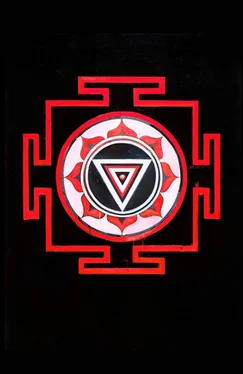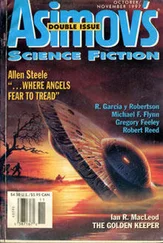‘Problem?’
‘If there’s an ocean at the end of this stream of consciousness, you should start flowing into it. Right about now.’
‘The ocean?’ he asked, mystified.
‘The point , Farzad. Get to the point .’
‘Oh,’ he smiled. ‘The point. Yes. There’s definitely something quite like a kind of a point, that’s for sure. Count on it.’
He stared at me for a few moments, then lowered his eyes and began making circles on the surface of the wooden desk with his fingertip.
‘Actually,’ he said at last, still avoiding my eyes, ‘I was trying to find a way to ask you to… to come to my house for… for lunch or dinner, and to meet… to meet my parents.’
‘That’s it?’
‘Yes.’
‘Why didn’t you just ask me?’
‘Well,’ he said, the little circles becoming smaller and smaller, ‘you’ve got a reputation, you know?’
‘What kind of a reputation?’
‘A reputation for being kind of a grouchy guy, yaar.’
‘ Grouchy? ’ I snarled. ‘ Me? ’
‘Oh, yes.’
We stared at one another. In the factory below, one of the large printing machines grumbled to life, dropping quickly into a chatter of metal clamps and rollers, advancing and retreating, rumbling and turning on a barrel drum.
‘Has anyone ever told you that you’re completely crap at this inviting-people-to-dinner thing?’
‘Well,’ he laughed, ‘this is really the first time I’ve ever asked anyone to my parents’ house in years. We’re kind of… private , if you know what I mean.’
‘I know private,’ I sighed. ‘Private is what I had, before you.’
‘So… will you come? My parents are really dying to meet you. My Uncle Keki used to talk about you a lot. He said you were -’
‘Grouchy. I know.’
‘Well, yes, that, too. But he also said you were big on philosophy. He said you were Khaderbhai’s favourite for arguing and talking philosophy. My pop is a great one for that. My Mom’s even worse. The whole family have these big philosophical discussions. Sometimes there’s thirty of us, arguing at the same time.’
‘Thirty of you?’
‘We have this… kind of… extended family. I can’t really describe it. You have to see it. I mean, see us . But you won’t be bored, that I can promise you. No way. Count on it.’
‘If I agree to visit your indescribable family, will you leave me alone and let me get back to work?’
‘Is that a yes ?’
‘Yes, one of these days.’
‘Really? You’ll come?’
‘Count on it. Now get outta here, and let me get these books done.’
‘Great!’ he shouted, dancing a few steps left and right with his hips. ‘I’ll talk to my pop, and set it up for one day this week. Lunch or dinner! Great!’
He gave me a last smile and a wag of his head, and then closed the door behind him.
I pulled the file back toward me, the Nigerian’s file, and began to draw out the basic elements of the man’s new documented identity. A much kinder but completely artificial life began to develop on my sketchpad.
At one point I opened a drawer full of photographs of clients who wanted passports: the survivors, the lucky ones who weren’t shot, drowned, or imprisoned in the attempt to find a better life.
Those faces from war and torture, brushed and cleaned and smeared with artificial calm for our passport photo studio, held my eyes. Once we wandered a free Earth, carrying a picture of our God or king to ensure safe passage. Now the world is gated, and we carry pictures of ourselves, and nobody’s safe.
And the bottom line, for the Sanjay Company, was always black: black money. Every black market in the world is the child of tyranny, war or unpopular laws. We turned over thirty to forty passports per month, and the best of them sold for twenty-five thousand US dollars apiece.
Treat war like business , Sanjay once said to me, villainy bright as a newly minted coin in his eyes, and business like war .
When the background work on passports for current clients was done, I collected the files and photographs to take them down to the factory floor. I took my own passport, the new one I’d prepared for the trip to Sri Lanka, and shoved it into the centre draw of the desk. I knew that sooner or later I’d have to hand it over to my best counterfeiters, Krishna and Villu, who were, as Fate would have it, Sri Lankan refugees. But I wasn’t ready to face that journey yet.
I found Krishna and Villu sleeping on two couches I’d installed for them in a quiet corner, away from the printing machines. The challenges of new passport work always excited the Sri Lankan forgers, and quite often they’d work through the night without sleep, to complete an assignment.
I watched them for a while, listening to their snoring drift in and out of chorus, swelling sometimes to a grinding roar, in almost perfect unison and then separating once more into rasp and gasp. Their free arms hung loosely at their sides, hands open, receiving the blessing of sleep.
The two other workers who helped me were running errands, and at that moment the factory was silent. I stood for a few moments in that snoring, peaceful place, envying the sleepers.
They’d come to Bombay as refugees. When I’d met them, they were living as pavement-dwellers under a sheet of plastic with their families. Although their work for the Sanjay Company paid well, allowing them to move to comfortable, clean apartments not far from the factory, and they had flawless identity cards, forged by their own hands, they still lived in fear of deportation.
The loved ones they’d left behind were lost to them, perhaps never to be seen or heard from again. Yet despite everything they’d endured and continued to suffer, they slept like children in a placid, insensible peace.
I never slept as well as they did. I dreamt too often and too hard. I always woke in a thrashing struggle to be free. Lisa had learned that the safest way for her to sleep in the same bed was to hold me close, and sleep inside whatever circle my dreaming mind was trying to break.
I left the pile of documents on Krishna’s desk, and climbed the wooden stairs quietly. They had their own keys, so I locked the door behind me.
I’d arranged to meet Lisa, to visit the slum clinic with her and have lunch afterwards. She’d developed a relationship with our local pharmacist, who’d provided a few boxes of medicines. The medicines were packed into the saddlebags of my motorcycle, and she’d asked me to deliver them with her.
I cruised the gradual creep of noon traffic, because sometimes it’s enough of everything to be moving slowly on a motorcycle, on a sunny day.
In the rear-view mirror of my bike I saw a cop on a motorcycle quite similar to my own. He was drawing alongside me.
The peaked cap and a revolver in a leather holster at his side said that he was a senior officer. He raised his left hand, and pointed to the kerb with two outstretched fingers.
I pulled my bike into the kerb, behind his. He pushed out the side-stand on his bike, then swung a leg over the seat and turned to face me. With his right hand resting on the holster, he slid two fingers of his left hand across his throat. I killed the engine, and remained on the bike.
I was calm. Cops pulled me over from time to time, wanting to talk or collect a bribe. I always kept a rolled-up fifty-rupee note in my shirt pocket for just that purpose. And I didn’t mind. Gangsters understand police graft: cops don’t get paid enough to risk their lives, so they tax the community the shortfall.
But something in the officer’s eyes, a glimmer reflected off a flaw more jagged than corruption, made me uneasy. He slipped the catch off the holster and slid his hand under the stiff cover, on to the butt of the revolver.
Читать дальше












